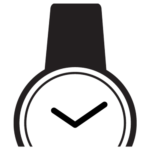Definition
A chronometer is a clock, specifically a wristwatch, that has been tested and certified to meet certain precision standards. Unlike a chronograph, which is a device for measuring time intervals, the chronometer is evaluated for its ability to keep time with utmost accuracy. Certifications are typically provided by official bodies like the Controle Officiel Suisse des Chronometres (COSC) in Switzerland.
Origin
The word “chronometer” stems from the Greek “chronos” (time) and “metron” (measure). The concept evolved in the 18th century, largely due to the need for accurate time measurement in maritime navigation for longitude determination.
Usage
In the watch industry, the chronometer designation indicates a high degree of accuracy. Watches with this certification are often more expensive and sought-after by enthusiasts and collectors. They are common in luxury watches and high-precision models.
Examples
Rolex is known for producing most of its watches with chronometer certification.
The Omega Speedmaster Professional, famed for its use in space missions, is also a certified chronometer.
Synonyms
There are no exact synonyms for “chronometer” in the context of certified watches, but terms like “high precision watch” are often used.
Related Terms
- “COSC”: The body that certifies chronometers in Switzerland.
- “Precision”: The main quality that a chronometer certifies in a watch.
Tips
When looking for a chronometer, ensure it comes with a certificate of authenticity and precision.
Regular care, like maintenance and adjustments, is crucial in preserving a chronometer’s accuracy.
Trivia
The development of the chronometer was vital for maritime navigation, solving the longstanding issue of calculating longitude at sea.
Chronometer watches often display a specific seal or marking to indicate their certification.
